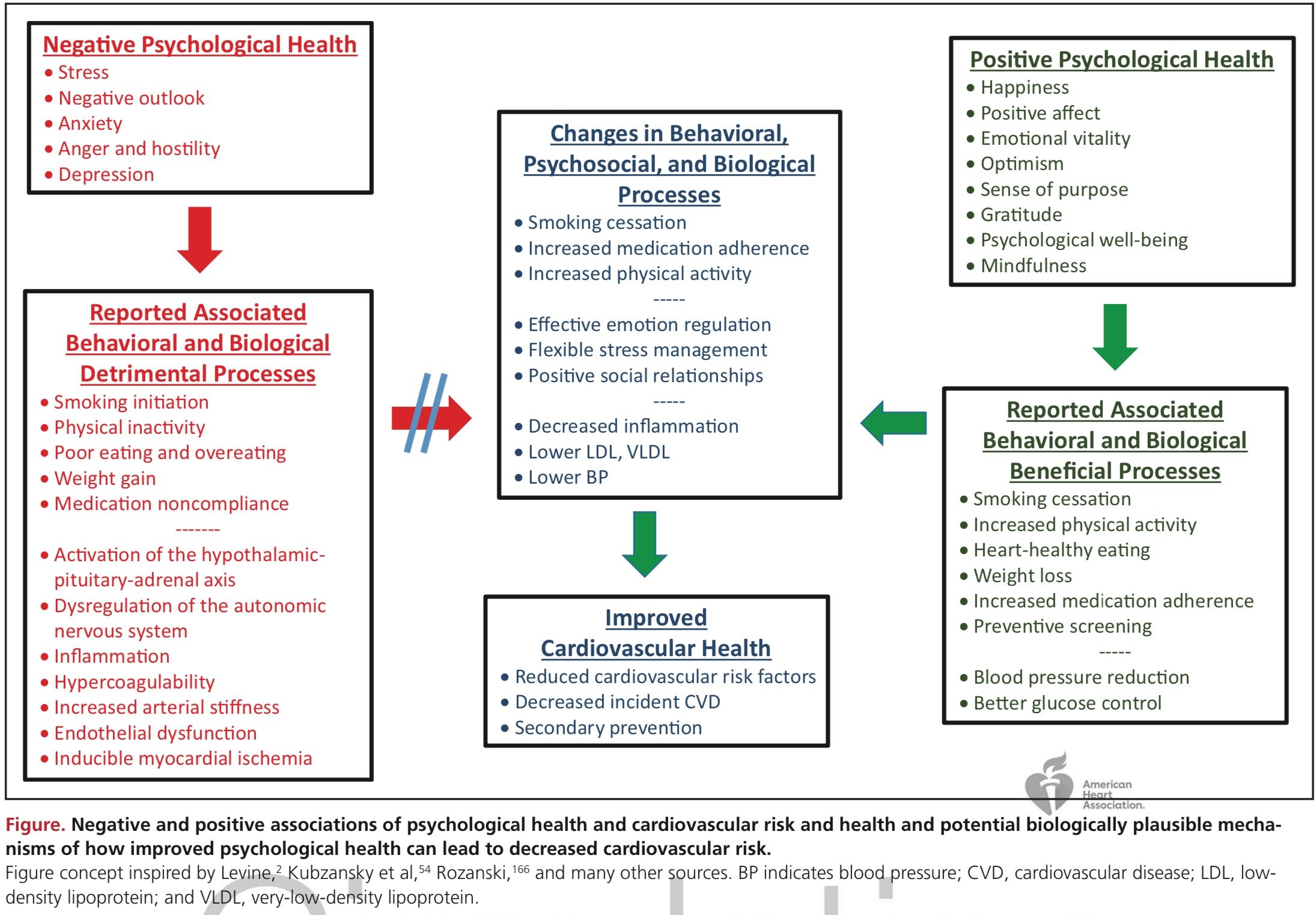Why You Need to Understand the Mind-Heart-Body Connection
“I’ve recently read that there is a strong link between mental health and heart health. What does this mean? ”
Dear Happy Mind for Happy Heart,
You are absolutely right—this is currently a hot research topic in the medical field and researchers have been devoting an increasing amount of time and attention to it. In the past, clinicians tended to treat cardiovascular (heart) disease with a very targeted pharmacological or device-based approach. All the focus was on the physical disease, and not on the person as a whole.
However, we are beginning to discover more and more that our psychological health (our well-being) is strongly tied to our heart health in both positive and negative ways. In other words, poor psychological health has a negative impact on cardiovascular health, while positive psychological health can improve cardiovascular health and reduce cardiovascular risk.
So what exactly defines our psychological health, a.k.a our well-being? According to the American Heart Association, “well-being can be defined as one’s cognitive and affective evaluation and assessment of one’s life, including physical health, satisfaction, happiness, and a sense of fulfillment. Well-being serves as an umbrella term for the different valuations people make about their lives, including their physical and mental health, their financial position, their social supports and connectedness to community, their opportunities for growth and ability to achieve their goals, and a general sense of purpose and satisfaction with their life course.”
This concept has come to be called the “mind-heart-body connection”. As the name implies, the underlying theory is that these three components—the mind, the heart, and body, are all interconnected and interdependent. Something that affects one can affect the other two, and vice versa. The following chart from the AHA visually explains specific ways the mind-body-heart connection works.
For example, optimism, gratitude, or a sense of purpose may translate to healthier eating, exercise, smoking cessation, preventative screening measures, weight loss, or increased medication adherence. These factors in turn translate to decreased inflammation, lower cholesterol, and lower blood pressure, which then lead to reduced cardiovascular risk factors. On the other hand, stress, negativity, anxiety, anger, or depression often lead to smoking, physical inactivity, unhealthy eating, weight gain, or medication non-compliance—all of which increase cardiovascular risk (see chart below for details).
The mind-body-heart connection has important implications not only for clinicians and healthcare professionals, but for each of us! When we understand how strongly our psychological well-being impacts our physical health, we are more likely to take measures to improve it—whether by incorporating more uplifting and stress-relieving activities into our day or by consciously eliminating known causes and sources of psychological stress. Of course, what this looks like will differ for each individual. Take some time to identify what measures will be most effective for you!

